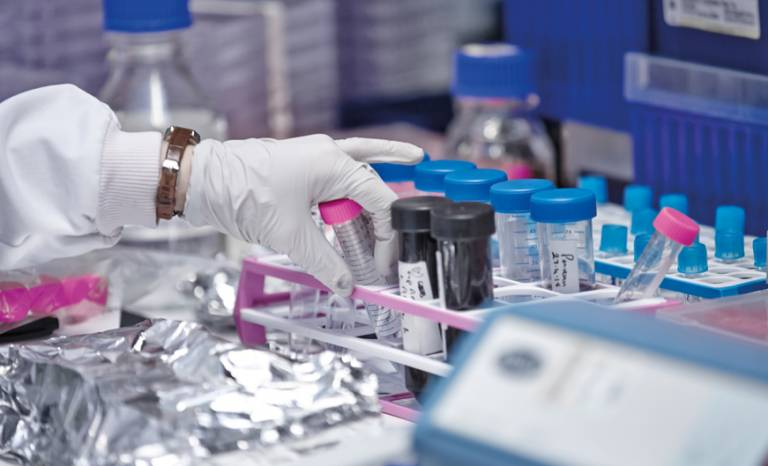
The World Health Organization announced on Monday that it is suspending the clinical trial of hydroxychloroquine as potential treatment for coronavirus.
The decision to suspend the trial came following a study in medical journal The Lancet, which said there is evidence that taking hydroxychloroquine might even increase the number of deaths among those in hospital with the disease.
“We were unable to confirm a benefit of hydroxychloroquine or chloroquine, when used alone or with a macrolide, on in-hospital outcomes for COVID-19. Each of these drug regimens was associated with decreased in-hospital survival and an increased frequency of ventricular arrhythmias when used for treatment of COVID-19,” statement from Lancet said.
Register for Tekedia Mini-MBA edition 17 (June 9 – Sept 6, 2025) today for early bird discounts. Do annual for access to Blucera.com.
Tekedia AI in Business Masterclass opens registrations.
Join Tekedia Capital Syndicate and co-invest in great global startups.
Register to become a better CEO or Director with Tekedia CEO & Director Program.
In February, hydroxychloroquine gained international attention when it showed significant progress in clinical trials. The drug became a top choice in treatment of coronavirus disease. The US president Donald Trump started promoting the drug in his push for a cure for the COVID-19 pandemic.
Hydroxychloroquine is a malaria drug, and can be used for lupus and arthritis. Its use in the treatment of coronavirus appears to have been borne out of desperation since no clinical trial recommended it for treating COVID-19.
However, the use of the drug soared in many countries, with self-medication being the new normal as many people seek to protect themselves from the disease.
On Monday, officials at WHO said hydroxychloroquine would be removed from the trials until its safety is ascertained. The director-general of WHO, Tedo Ghebreyesus said that Lancet’s findings have necessitated the pause in the use of the drug.
“On Friday, the Lancet published an observational study on hydroxychloroquine and chloroquine and its effects on COVID-19 patients that have been hospitalized. The authors reported that among patients receiving the drug, when used alone or with a macrolide, they estimated a higher mortality rate…
“The executive group has implemented a temporary pause of the hydroxychloroquine arm within the Solidarity Trial while the safety data is reviewed by the Data Safety Monitoring Board. The other arms of the trial are counting,” he said.
However, some countries said they will continue with the trial and use of the drug for coronavirus treatment.
The National Agency for Food and Drug Administration and Control (NAFDAC), said Nigeria will continue to use chloroquine in treatment of coronavirus patients following substantiated data that proves its efficacy. The director-general of the agency, Mojisola Adeyeye said the clinical trial will go on for the next three or four months.
“There is data to prove that hydroxychloroquine worked for many COVID-19 patients. Therefore, we would continue our own clinical trials in Nigeria. Hydroxychloroquine has been proved to work at a mild stage. So the potency depends on the severity of the disease in the patient’s body.
“If medical doctors, research scientists, pharmacists, herbal experts work together, we should conclude the trial in three to four months. The narrative might change afterwards but for now, we believe in hydroxychloroquine,” she said.
Turkey is another country that has defied the Lancet findings and the WHO’s decision to suspend the use of the drug until a final conclusion is made on its safety.
A senior government official said on Tuesday that hydroxychloroquine which has the generic name (plaquenil) in Turkey, will continue to be used because it has effectively reduced cases of Pneumonia and COVID-19 in the country.
“We are still using it. It is very effective when combined with other drugs in the early stages of the disease. However we don’t see the same results in the later stages when the patient needs to be put on intensive care,” the official told Middle East Eye.
Turkey was one of the countries that invested heavily on chloroquine before it reached the peak of COVID-19, stockpiling one million units of the drug in March, before many companies in the Middle East country started producing a generic version.
The data from the Turkish health ministry said 60 percent of cases registered on 24 March have fallen to 19.5 percent on April 6. A decrease they attributed to the use of hydroxychloroquine.
Besides Nigeria and Turkey, several other countries and individuals have vowed to continue to administer the drug in the treatment of coronavirus patients. Though the most prominent advocate of the hydroxychloroquine, Donald Trump said he has stopped taking it as a precautionary measure, it appears he has inadvertently inspired many to stick to the drug, after all, there is no better choice yet.
On the other hand, the US’ government’s deteriorated relationship with the WHO seems to have created rooms for distrust for the UN’s health agency, and many countries are now operating from them at the expense of the existing global health synergy.



